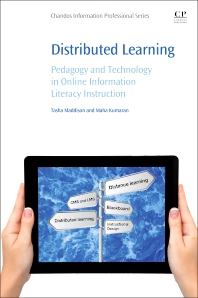Books in Library technical services
Books in Library technical services

Digital Disruption and Electronic Resource Management in Libraries
- 1st Edition
- Nihar K. Dr. Patra
- English

Distributed Learning
- 1st Edition
- Tasha Maddison + 1 more
- English

Electronic Resource Management
- 1st Edition
- Anne Elguindi + 1 more
- English

Libraries and Archives
- 1st Edition
- Tomas Lidman
- English

Library Technology and User Services
- 1st Edition
- Anthony S. Chow + 1 more
- English

An Overview of the Changing Role of the Systems Librarian
- 1st Edition
- Edward Iglesias
- English

How LIS Professionals Can Use Alerting Services
- 1st Edition
- Ina Fourie
- English

The Culture of Evaluation in Library and Information Services
- 1st Edition
- John Crawford
- English